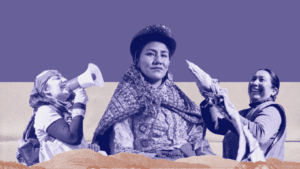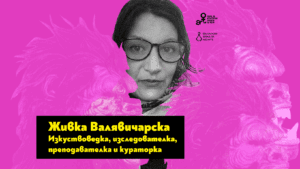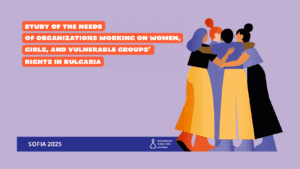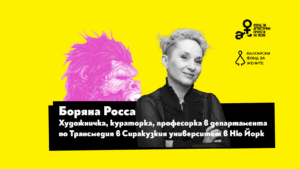Landslide support by 89.5% of Bulgarian society for the right to a planned legal abortion is demonstrated in the data from a study with nation-wide representation that was commissioned by the Bulgarian Fund for Women (BFW) and conducted by the sociological agency Alpha Research.
This study marks the start of an information campaign on women’s reproductive rights named “My destiny. My Choice”, which aims to popularize Bulgarians’ attitudes about the topic and dispel myths used as arguments by some political parties and religious organizations in an attempt to ban legal abortion in Bulgaria in recent months.
Society is clear in its support for the right to abortion, with the woman and her partner having the right to making the decision on this issue unobstructed. Public opinion is also consolidated around the thesis that the right to abortion is a fundamental human right for every woman, according to 89 percent of adults in the country.
Results of the studyfurther demonstrate that support for the right to abortion by far does not mean support for irresponsible behavior, on the contrary: 86% of Bulgarians are of the opinion that it is best that women protect themselves from unwanted pregnancy, but should it occur, they must have the right to choose whether to have an abortion or not.
Adequate health and sexual culture of men and women is recognized as a key prerequisite for responsible and safe reproductive behavior, including prevention from unwanted pregnancy. In this respect, a 76% majority of Bulgarian citizens are explicit in their support for the position that health and sex education classes need to be introduced in school curriculums. This view is shared by both the older and the younger generations, both men and even more so – women, living in different towns and villages and with different socio-economic status. Information provided by professionals is perceived as a much more reliable way for adolescents to acquire knowledge about their reproductive behavior than other sources such as the Internet, etc.
Public attitudes are also adamant that a ban on abortion would bring far more negatives than positives – both specifically for women’s health and socially. Based on negative experiences in the past, the two most serious consequences expected are: first of all, an increase in illegal abortions with all risks to women’s health (73%), and secondly, an increase in the number of abandoned children (55%). Ideas propagated by opponents of legal abortion remain extremely unpopular in people’s attitudes: only 6% say abortion would solve the demographic crisis, and 9% believe more children will be born and raised by their parents.
Society is far from convinced that abortion is one of the main drivers of the demographic crisis. On the contrary, it is the least recognized cause of depopulation and aging of the population. According to the majority of citizens, a complex mix of socio-economic factors is at the heart of the demographic problem: first of all, low income levels, which force many young people to emigrate abroad, thereby reducing the number of women of childbearing age in our country (82%), secondly, the global trend in the developed countries, which cannot fail to affect Bulgaria – having fewer children, but providing them with better quality of life and quality education (58%), and thirdly, the overall aging of the population (57%).
As to how abortions should be paid for, whether personally or by the state, one in two thinks that they should be covered by the state health fund, provided that the woman has health insurance. The rest of the citizens find it difficult to form an opinion on the topic (26%) or feel that this procedure should not be paid for by the health insurance fund, regardless of the woman’s insurance status (22%). The claim that the cost of abortion should be borne by the NHIF is most heavily supported by women of active age (30-50 years), not employed in manual labor and are most likely to be able to benefit from the possibility of the state paying for such a procedure if necessary.
The survey registered similar positions on these issues among all socio-demographic groups in the country: both among the younger and older, in large and small towns and villages, both among women and men, among people with different educational and socioeconomic status.
The survey was conducted in the period 3-12 August 2019 among 1,000 adult citizens of the country through a direct standardized interview at their homes, using tablets. A two-tier selection, stratified by region and settlement type was used, with the selection of respondents by quota based on NSI data for the socio-demographic structure of the country. The study (in Bulgaria) is available here.
The “My Destiny. My Choice” campaign can be tracked on the social media profiles of the Bulgarian Fund for Women onFacebookandInstagram over the coming weeks. Keep an eye out for publications with the #МоятаСъдбаМоятИзбор hashtag.





